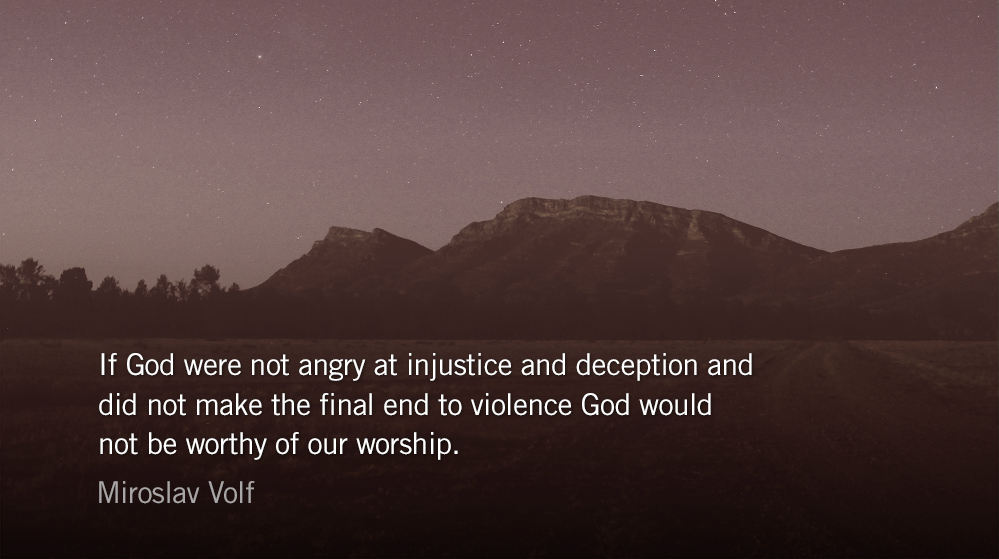The goal of pursuit of justice must not simply be that justice happens but that reconciliation also happens.
― Miroslav Volf
Scripture: Leviticus 24.19-20
[The Lord spoke to Moses, saying,] “If anyone injures his neighbor, as he has done it shall be done to him, fracture for fracture, eye for eye, tooth for tooth; whatever injury he has given a person shall be given to him.”Reflection: God’s Justice
By Miroslav Volf
One could object that it is not worthy of God to wield the sword. Is God not love, long-suffering and all-powerful love? A counter-question could go something like this: Is it not a bit too arrogant to presume that our contemporary sensibilities about what is compatible with God’s love are so much healthier than those of the people of God throughout the whole history of Judaism and Christianity?
In a world of violence it would not be worthy of God not to wield the sword; if God were not angry at injustice and deception and did not make the final end to violence God would not be worthy of our worship. Here, however, I am less interested in arguing that God’s violence is not unworthy of God than in showing that it is beneficial to us.
My thesis that the practice of nonviolence requires a belief in divine vengeance will be unpopular with many Christians, especially theologians in the West. To the person who is inclined to dismiss it, I suggest imagining that you are delivering a lecture in a war zone (which is where a paper that underlies this chapter was originally delivered). Among your listeners are people whose cities and villages have been first plundered, then burned and leveled to the ground, whose daughters and sisters have been raped, whose fathers and brothers have had their throats slit. The topic of the lecture: a Christian attitude toward violence. The thesis: we should not retaliate since God is perfect non-coercive love.
Soon you would discover that it takes the quiet of a suburban home for the birth of the thesis that human nonviolence corresponds to God’s refusal to judge. In a scorched land, soaked in the blood of the innocent, it will invariably die. And as one watches it die, one will do well to reflect about many other pleasant captivities of the liberal mind. If God were not angry at injustice and deception and did not make a final end of violence, that God would not be worthy of our worship.
*Excerpt from Exclusion and Embrace: A Theological Exploration of Identity, Otherness, and Reconciliation by Miroslav Volf.
Prayer: The Request for Presence
For God alone my soul in silence waits; truly, my hope is in him. — Psalm 62:6
– From The Divine Hours: Prayers for Springtime by Phyllis Tickle.
Full prayer available online and in print.
Today’s Readings
Leviticus 24 (Listen – 2:58)
Psalm 31 (Listen – 3:11)






